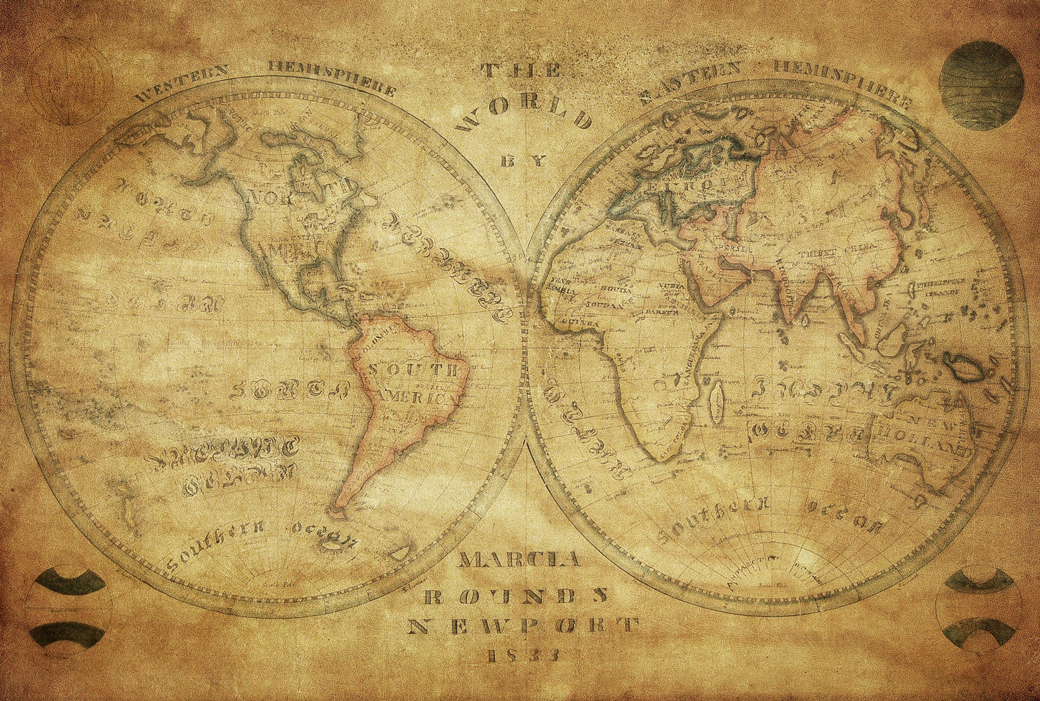
DNA Testing has taken the world by storm over the past few decades. In the 2000’s, DNA tests cost about $1,000, but now they’re a fraction of that price thanks to companies like 23andMe, Ancestry.com, and CRI Genetics, who’ve brought at-home DNA test kits to your front door. A 30-second cheek swab and you’re gifted with ancestry and health insights that are so extensive they may seem like they’ve come straight out of a science fiction film. DNA testing has blown the door wide open when it comes to self-discovery, but with so many DNA test kits now on the market, how do you know which one to choose?
Whether you’re looking to understand more about your ancestors and ethnicity or shine a light on the unique physiological traits that make you who you are, you’ve come to the right place. We’ll walk you through seven of the most important factors to consider when choosing your DNA test kit.
Suggested Reading: How Much Does a DNA Test Cost and How Long do They Take?
1. Find a Company with the types of DNA Tests and Services You Want
While most DNA testing companies can tell you different things about yourself through your 22 autosomes (non-sex chromosomes), or your mitochondrial DNA, which is passed down only by mothers, or, through Y-DNA, which is passed down nearly unchanged from fathers to sons, there’s also a wide variety of test results between the different companies. Three important services to look for are:
- Ancestry, which can inform you about potential ethnicities
- Health, which can detail unique genetic traits
- Genetic genealogy and family finder services
Ancestry Services to Look For
Three elements of a great DNA ancestry service are:
- In-depth analysis – how far back in time your results go
- Level of detail – the amount of information/insights provided
- Context – what your results mean in the big picture of who you are
If you’re going to spend your money on a DNA ancestry at-home genetic test, why not go for the deepest level of detail and analysis? You’ll want to compare companies based on what’s most important to you. CRI Genetics gives a threefold ancestry compilation of results, including Recent Ancestry, Advanced Ancestry, and Advanced Timeline, and each one tells you a little something different.
Recent Ancestry details your most recent 5-7 generations with a percentage breakdown of your DNA and how it makes you who you are. Advanced Ancestry can help you uncover the ancient origins of your DNA with in-depth results, up to 1,000 years into the past. You’ll get a better idea of all the corners of the world where your genetic code has been found most abundantly in reference populations. On top of that, your Ancestry Timeline adds a final layer of detail by showing not only where your ancestors lived, but during which time periods, stretching as far back as 50 generations.
It’s important to understand which ancestry services each DNA testing company provides, because it’s not always the same. Do your research and know what you’re getting into.
Suggested Reading: How Does Ancestry DNA Testing Work?
Health Services to Look For
When it comes to health services, the big things to look out for are:
- number of reports
- depth of results
- actionable insights
Quality over quantity. Getting in-depth results and insights can give you peace of mind that time and care has been taken in researching and creating your reports. Check to see if the company has sample reports you can view. They may not show you the entire thing, but a preview can give a fairly good idea of the kind of care they put into creating reports.
In addition, telling you what that result means in the scope of your life is also extremely useful and important. If you are a slow caffeine metabolizer and it does matter how much coffee or tea you drink in a day, you’ll want to find a company that dives into this for you.
Actionable insights are essential because we want to know if and how we can alter something in our lives to potentially make it better. What could we start avoiding that we aren’t? What could we do more of to improve our quality of life? If we find out we carry the genetic marker that makes us more prone to caffeine anxiety, having this information can help us make more informed decisions in the future.
Genetic Genealogy and Family Finder Services to Look For
Genetic genealogy and family finder services are another highly sought-after feature in DNA ancestry testing. The ability to find and communicate with relatives you never knew existed is a major selling point for many companies. There are also companies who do not offer this service, as some of this information can be very private and sensitive to some people.
If this is a service you want, be sure to understand the implications of putting yourself into a database where others can potentially find you. You can opt out of this feature with most companies, but it may be part of the price you’re paying for the product itself.
2. Get Detailed Ancestry Reports that Go Back as Far as Possible

Humans are thought to have around 100,000 genes. Therefore, about 100 million nucleotide pairs of coding DNA must be present in the human genome. The number of genetic markers a DNA ancestry company looks at is vital to understanding more about yourself. The more genetic markers a company looks at, the more granular the analysis.
It’s not enough to analyze a high number of genetic markers though. Consider the various kinds of information you can get from those analyses, as not all companies deliver the same thing. CRI Genetics looks at 571,414 genetic markers with their current genotyping chip, which is standard in the field of genetic testing, however, what matters here is the depth and breadth of information that one can glean from their analysis.
Two companies currently offer timeline reports: 23andMe and CRI Genetics. Timeline reports provide information about the generations of your family and where certain ancestral lineages appear in the history of your DNA and the DNA that led to creating you. In other words, you can see which ancestries (not ancestors, people, or names of people) entered your family line and around which approximate years in history.
23andMe’s timeline traces back up to 8 generations, while CRI Genetics’ Advanced Ancestry Timeline can reach as far back as 50 generations, or up to 1,000 years of one’s ancestry, which is a significant 5x difference.
Dr. Alexei Fedorov, Chief Scientific Officer at CRI Genetics, has over 37 years of experience in genetic research and has made it his life’s work to further mankind’s understanding of the human genome. During his apprenticeship to Walter Gilbert at Harvard University, their team devised new methods for determining the sequence of nucleotides in a nucleic acid, which earned Gilbert, Frederick Sanger, and Paul Berg the 1980 Nobel Prize in Chemistry.
DNA testing companies continually look to expand the number of markers analyzed as we uncover more about the human genome. Small details matter. The science team working in the laboratory to uncover new research is especially important.
Suggested Reading: What is a Gene? What is a Genome?
3. Get Detailed Health and Trait Reports You Can Apply to Your Life
While some companies are venturing into the newer realms of health DNA testing, not everyone puts in the time and energy into creating reports based on your physiological traits and health markers. What exactly are health DNA tests used for?
Suggested Reading: How Does Health DNA Testing Work?
The debate over how many protein-coding genes humans have is ongoing, but the latest research puts the number between 20,000 and 25,000, and many of these genes code for specific traits. DNA health testing looks at distinct markers in your genome to tell you about your specific genotype for a trait: for example, caffeine metabolism. You could be a fast or slow metabolizer, and this is an example of what a health report can tell you.

Some companies don’t offer any health tests at all, while others decode traits that number in the 100’s. Make sure you understand the depth and detail of a company’s health reports if that’s something you’re interested in before you make your purchase. Choose a company who makes the information accessible and takes the time to explain the science in a way that you can understand.
It’s not enough to just provide a result or a pie chart anymore. This is increasingly important as the world better understands the effects of our environment on our genes, known as epigenetics, and as we move further in the direction of personalized medicine.
Suggested Reading: Here’s Your Ticket to Board the 21st Century Mayflower
4. Find a Company Dedicated to the Science and Staying Current
Who runs the science team that’s creating your ancestry and health reports? This is an important question to ask yourself as you search for the best DNA test. Some other important questions that may come up on your search are:
- Who is their Chief Scientific Officer?
- Are they involved in active research?
- Do their scientists publish papers in the field of genetics and/or human evolution?
Every DNA testing company needs to turn a profit, otherwise they go out of business. How they do that is their business, however, the science should never be forgotten or sacrificed in place of profit.
Having the most up-to-date technology, genotyping chip, and an algorithm to match one’s DNA to reference populations is only part of the process. Like humans, genetic testing is constantly evolving as we delve into the possibilities of the human genome, so it’s important to understand how companies are updating their processes and algorithms.
Participating in active research is also a great indicator that the company is taking care to offer the best product and services possible. Dr. Fedorov’s article on the intricacies of human ancestry and relatedness is the type of ongoing research that pushes forward the bleeding edges of genetics. Unearthing mysteries about who we are personally while proposing a new theory of human population relatedness is just the beginning of this new frontier of genetics we’re now stepping into.
5. Focus on a DNA Testing Company that Focuses on Your Data Privacy
We can’t ignore the elephant in the room and not mention data privacy when it comes to DNA testing. When you submit your DNA sample, what happens to your data anyway? 23andMe for example, will use and share your information with third parties to provide you with services and to analyze and improve their services. One such service provider, GlaxoSmithKline, took a $300 million stake in 23andMe so they could use the company’s customer data to research and design new drugs.

Privacy has become an increasing concern in all sectors so it’s always important to ask yourself what a company does with your data. You should always understand your rights, how to opt in and out of certain research, and how your data is stored. Other DNA testing companies are privately-owned, meaning their first call is to the customer.
If you are seeking ancestry services, it’s important to understand what kind of databases you’re in, and who has access to finding you. Your data, privacy, and health information are yours alone. You should always have total control, and always understand what you’re getting into when you buy a DNA test kit.
6. Opt into an Experience with Optimal Customer Service
If you’re like most people, DNA testing is a colorful new world bursting with possibilities. There’s a simpler explanation for some of the science, but there’s still a lot to understand. You will likely have a ton of questions about your ancestry and your health, so finding a company that can stay with you every step of the way is important.
There are benefits to going with a commercially large corporation that is backed by investors and new drug research, and there are positives to choosing a smaller company who may be able to provide a more personalized experience. At the end of the day, we all want to be valued and heard, especially when it comes to something as personal as our DNA. Each of us is immensely unique, and there’s no shame in wanting to feel that, or be reminded of what makes us special.
One way to gauge a product is through customer reviews, but another, often more immediate way is through one’s experience with customer service. How quickly can you get in touch with a representative? Do you feel like your questions are heard, valid, and important? If it’s difficult to get someone to help you with a potential issue you’re having, like not receiving your product, or technical difficulties like signing into your account, then those experiences may carry over as you continue to use the product.
Life happens, and so do delays. What matters is that you’ve been listened to, and measures have been taken to make things right or find a solution that is reasonable.
7. Choose a Company with a Good Reputation and High Customer Ratings
Read reviews. Look at Google and Facebook, who both have high standards when it comes to transparency and visibility of reviews by customers. Find a company that will have your best interests at heart. If others often have positive experiences with a certain company, chances are high that you will too. And vice versa.
Don’t base your decision off one or two good or bad reviews, either — get an idea for where a company stands in the eyes of its consumers before you make your decision. Chances are, you could have a very similar experience to someone who’s already made their choice, so choose wisely.
It’s also important to keep in mind that DNA ancestry is often a misunderstood service. Genetic inheritance is surrounded by misconceptions about how ethnicity estimates are calculated so be sure to do your research about how these things work as you read reviews and judge for yourself.
Interested in learning more about CRI Genetics and how we can help you?
Ancestry + Traits
- Dual BioGeographical Ancestry Reports
- Detailed Percentage Breakdown of Your Heritage
- Ancestry Timeline Report
- Up to 50 Generations of Your Family History
Health + Ancestry
- Everything in Our Ancestry Package PLUS...
- All Current Health Reports (120+)
- Get to Know Yourself Better than Ever
- In-depth Actionable Insights Customized to YOU
References:
- https://www.crigenetics.com/blog/how-much-does-a-dna-test-cost-and-how-long-do-they-take
- https://www.crigenetics.com/blog/cri-genetics-dna-test-education-how-does-ancestry-dna-testing-work
- https://www.crigenetics.com/blog/what-is-a-gene-what-is-a-genome
- https://www.crigenetics.com/blog/epigenetics
- https://www.crigenetics.com/blog/the-future-of-personalized-medicine
- https://www.crigenetics.com/blog/heres-your-ticket-to-the-21st-century-mayflower
- https://www.ncbi.nlm.nih.gov/books/NBK218247/#:~:
- https://www.mdpi.com/2079-7737/9/11/392
- https://www.crigenetics.com/blog/how-does-health-dna-testing-work-0?ucacid=1778264911.626571
- https://www.crigenetics.com/compare/23andme